A 16th Century Old Art Form Still Lives Today
Many people associate block printing with Northern India, but it actually began in the state of Andhra Pradesh in a fishing village called Machilipatnam in the 16th century and later travelled to Northern India to the state of Rajasthan. Before the 16th century, fabrics were hand painted with natural dyes and the process was called Kalamkari. The advent of etching a design into a block and stamping the fabric with that block decreased the cost of printed fabrics and made these types of fabrics popular for fashion and home decor.
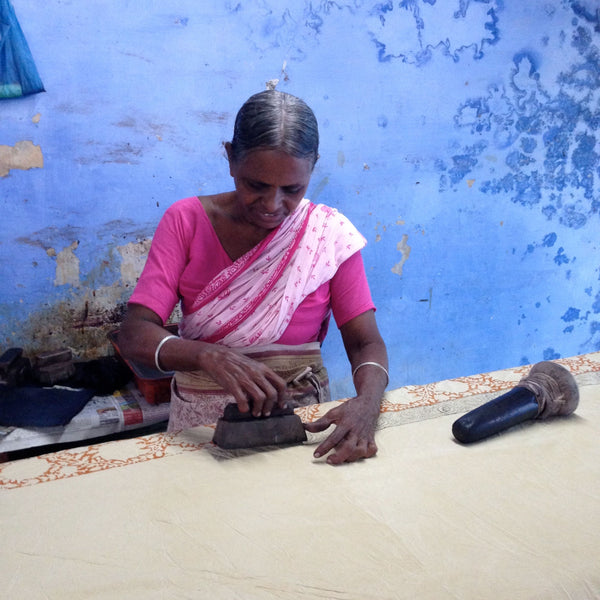
Sadly, the block printing art form died off in the 17th century. But thanks to a few good people, the art form was revitalized in the 1960s. Today, Passion Lilie sources its fabrics from a workshop that was apart of this revitalization and while I was in India, I had the privilege of visiting it.
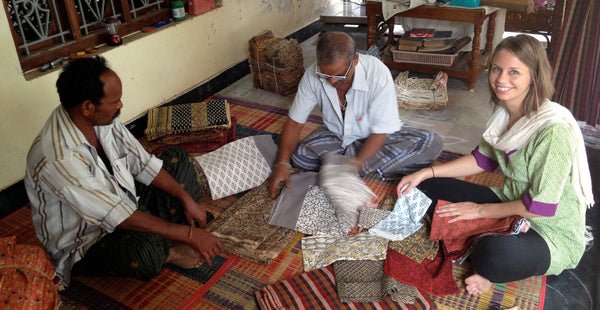
The block printing workshop started in 1969 by a hand loom weaver and now his two sons have taken over. After spending months communicate with the one son, Nagendra, by email, I was thrilled to meet him in person. He is a happy man who is always smiling and full of life. He is in his mid 60s, but works like he is in his 20s and has the presence of a caring fatherly figure with his workers. Both brothers are not only dedicated and extremely knowledgable on this art form, but they are also good, trustworthy people who have created an amazing and uplifting work environment.
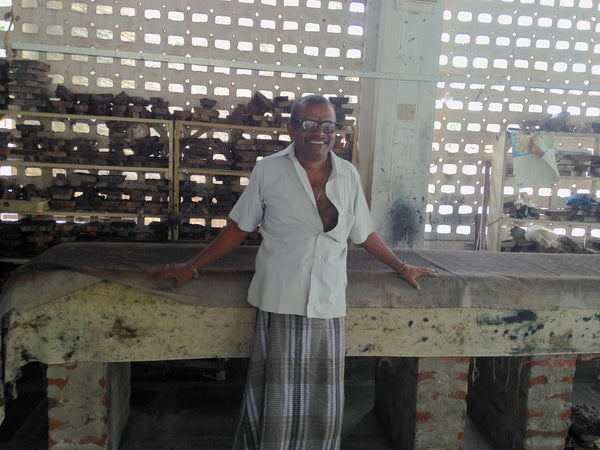
The workshop regularly employ about 10 women and men from a variety of religious backgrounds: Muslim, Christian and Hindu. Despite, the religious differences they all work in peace together. Some workers have been with the workshop for as long as 35 years and others for 4 or so years. The more experienced block printers have 20-32 years experience in the field.
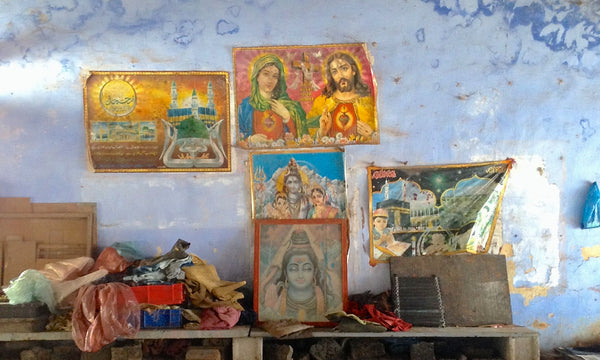
Thanks to the work that this workshop has provided, the workers are living above poverty, but many of their neighbors in the small village are struggling and in poverty. Not only does the workshop pay fair wages that are above the national minimum average and above what other workshops are paying, but they also offer many benefits such as:
- One new saree (typical Indian dress) with petticoats per year
- Bedcovers
- Health care- one woman needed cataract surgery and the workshop paid for it
- Payment into a retirement fund
- Safe and clean working conditions
- Pay advancements or loans if needed
- Double pay if they choose to work overtime
- Time off for personal or religious needs
- Land and housing assistance for those who are in need. Nagendra and his brother gave some of his father’s land and 20,000 INR (about $330) for doors and windows to four different faithful workers who had been woking for him for 20+ years. The government assisted with additional building materials that were needed such as toilets and electricity.
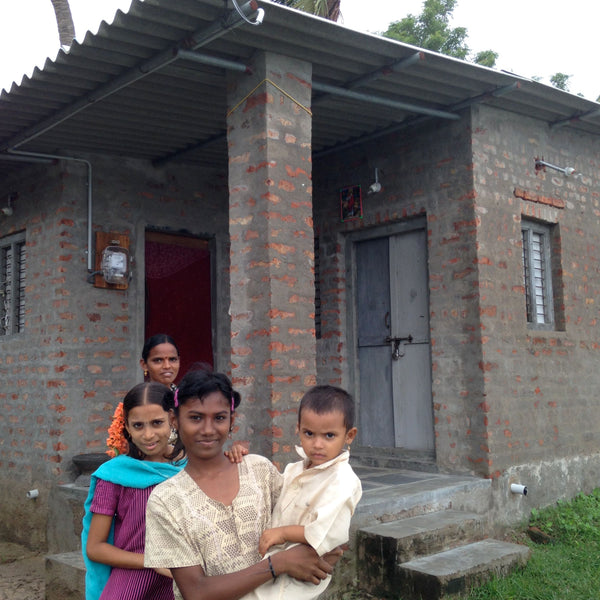
Passion Lilie is proud to support this workshop. About 75% of our Spring 2015 fabrics will be from these block printers. Stay tuned next week to learn more about the natural dyeing process.


Leave a comment